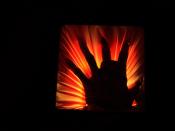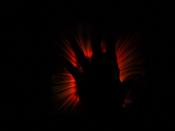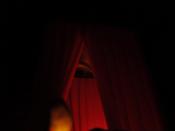Throughout these two poems "Eros" is revealed to the reader in two very different perspectives. The first poem by Robert Bridges portrays to the reader that Eros is a true god and that when it comes to love man is the one who suffers. In the second poem by Anne Stevenson, Eros is shown as a beat on and a miserable person who suffers from love.
The concept of the first poem is evident in the first stanza of the poem. "Why hast thou nothing in thy face? Thou idol of the human race, Thou tyrant of the human heart." ( ). These few lines tell the reader that the poet is confused by Eros and that he is also the dictator of the human heart, which portrays to us that humans suffer from love. In these lines we also see antithesis because Eros is a tyrant of heart, but also the idol of the human race, In the next stanza we have a paradox which further backs up the suggestion that the writer is confused about the true nature of Eros, "In secret sensuous innocence."
( ). Here it is depicted that Eros has a secret sexual innocence. How can one have sexual-based secrets and still be considered by others to be innocent? It is clearly evident through imagery, antithesis, diction, and paradox that the poet seems to be trying to figure out the complex Eros, and that man is the one who suffers from Eros' gift of love.
The concept of the second poem is radically different. Throughout the poem tone, diction, imagery and paradox prove this evidence. The first two lines already notify the reader that the speaker is not pleased with her call for love: "I call for love, but help...


